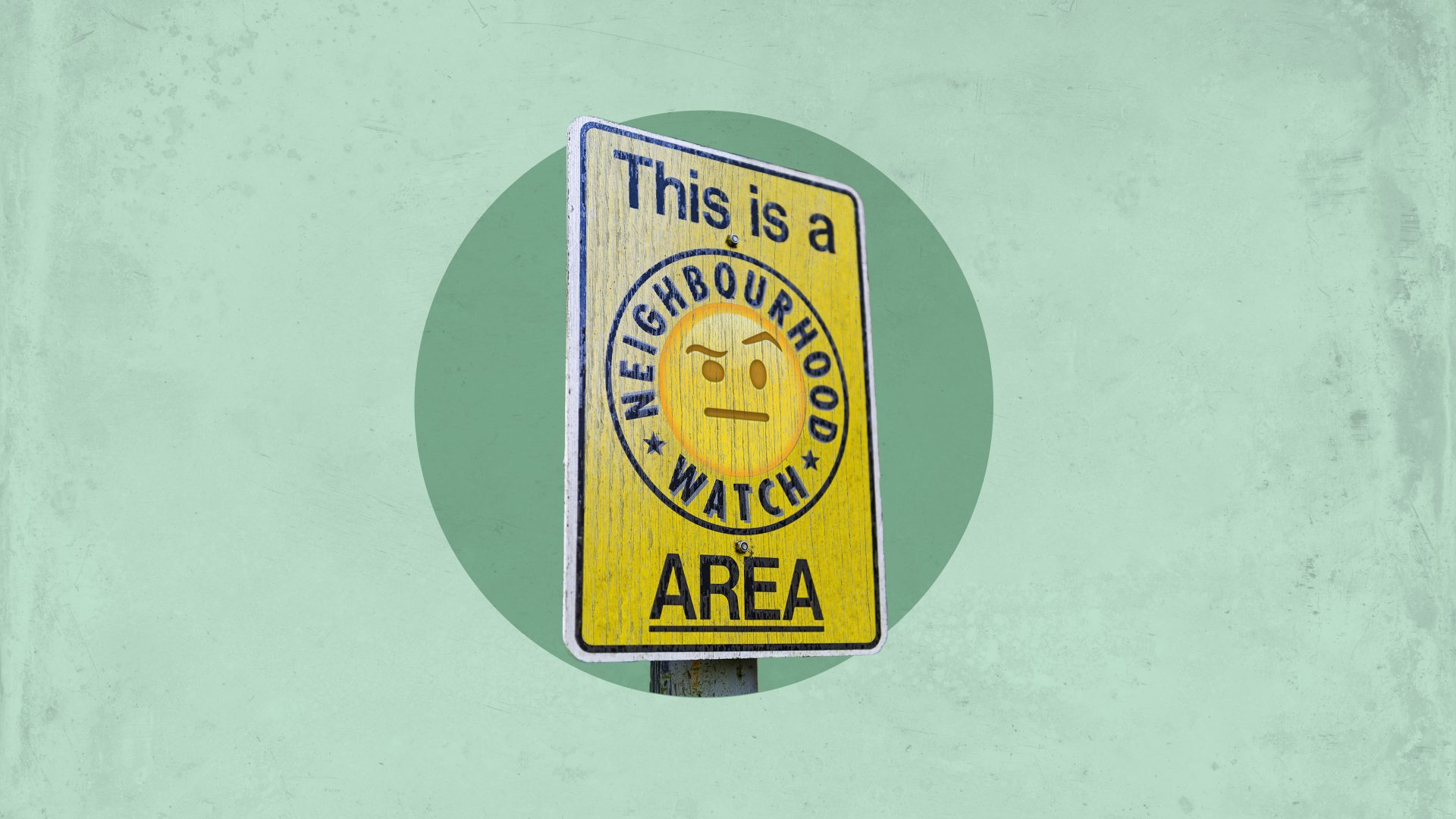We played out with their kids in the somnolent suburban streets – and on rare occasions, we entered their homes. The one on the left of our privet-bordered semi was a revelation of strangeness: she wore a nylon housecoat
– he read the Evening News in braces and slippers; all their furniture appeared either plastic-encapsulated or glass-topped, while the air seemed seeded with palpable droplets of air freshener. Everything was different on
the other side of the driveway. We never lose our first impressions of our neighbours – and arguably, our childhood neighbours form the paradigm for all our subsequent neighbourly relations.
Or lack of them. Because of course it wasn’t me who was so suspicious of the neighbours – but my mother; condemned against her will to a housewifely role she saw as a fundamental abuse of her liberty, she scorned the neighbours as bit-players in the epic of her own estrangement. Moreover – if she was to be believed – if you gave them an inch, they’d soon enough be standing centre stage. The key was to perfect a certain kind of polite stand-offishness that was intrinsic to the English middle-class mentality, but altogether alien to my Jewish American mother.
Anyway – I’ve been thinking of her, and the problem of neighbourly relations for the past three months, as I have every time I’ve ever moved. Will the new neighbours prove too distant or too close? Will they be bearable at all – or will the very fact of their existence confirm me in my unavoidable bourgeois destiny: to live out my days clipping the hedge and, from time to time, over-sharing over it?
First impressions were good – if a little queasily intimate: Next door pitched up within days with cookies she’d baked – which were lovely; two doors down with a nice bottle of wine. Both vouchsafed that this was a good
neighbourhood in which people looked out for each other. This was confirmed quickly enough when deliveries had to be made and cars moved – and when a problem emerged with the roof. On both occasions, neighbourly behaviour was cooperative – impeccable, even.
Not that anyone was in our faces – an acceptable distance was being maintained: no invitations to swingers’ parties, or Wiccan walpurgisnachts, only a suggestion that we might like to attend a residents’ association meeting. Lulled into a false sense of security, I ventured into the local church – then beat a hasty retreat as a group of women armed with holly wreaths tried to lasso me. That was shortly before Christmas, and around the same time, on a recommendation from the man painting our house, I signed up for a website called Nextdoor. “It’s a good way to find reliable tradesmen,” he told me. “If anyone’s done a bad job it gets called out here.”
“Called out” is an understatement – if you fit a pane of glass poorly you’ll be excoriated on Nextdoor, as you will if you fail in your own neighbourly duties. People bemoan the loss of community in our society, but every morning notifications appear in my mailbox of the most dreadful calumnies being committed in the immediate vicinity of my own pseudo-bucolical semi. Dog savagings, excrement spreadings, assaults, vandalism – and the concomitant climate of suspicion from which these outrages emerge.
Long before the web actually existed, Marshall McLuhan anticipated a massive communications system that would create a “global village”. Now we have it, and we realise that no matter how big a village is it’s still subject to the same curtain-twitching gossipy bigotry as real-world communities. And now we also have sites like Nextdoor, that return us, virtually, to the actuality of a social existence that most of us – who overwhelmingly live in large towns and cities – try to do without. Now, I wander the surrounding streets, wondering which of the nondescript neighbours I pass is responsible for the 24-hour crack-fuelled house parties, or is the owner of the attack dog that ate a cockapoo in the local park.
It’s as if my mother’s fears had taken on a dystopic reality, for now my neighbours simultaneously have walk-on roles IRW, while also playing major parts in the phantasmagorical neighbourhood brought to life by Nextdoor. True, on the upside, if you identify yourself as new to the area on the site, your fellow users can offer you virtual handshakes and even “cuppas”. Yes, this must be the way society finally collapses into wholesale anomie: with a close coterie of avatars offering each other sweetened nothings and sour comments.



